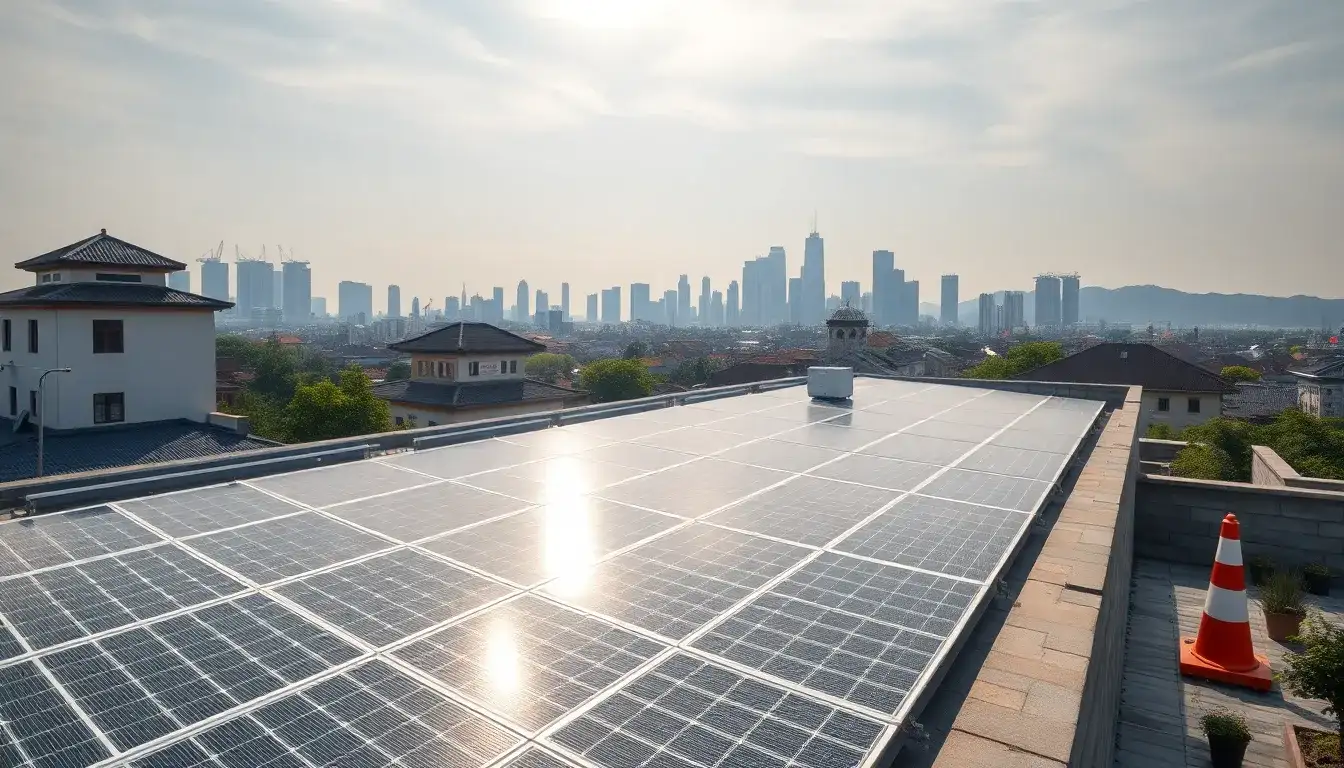
On March 12, 2025, the Energy Bureau of Yulin City, Guangxi, issued a Risk Warning Letter for Distributed Photovoltaic Power Generation Development and Construction. This letter addresses safety concerns related to distributed photovoltaic projects, focusing on issues such as construction practices, equipment quality, and site selection. The aim is to prevent potential safety risks, including electric shock injuries and falls, during the upcoming construction rush related to the “4·30” and “5·31” policy windows. The details are as follows:
The Energy Bureau of Yulin City has sent this warning to all development park management committees, county (city, district) development and reform bureaus, and distributed photovoltaic development enterprises.
Recently, several state policies have been released, including the Interim Measures for the Management of Distributed Photovoltaic Power Generation Projects (Guo Neng Fa Xin Neng Gui [2025] No. 7) and the Notice on Deepening Market-Oriented Reforms of Renewable Energy Grid Prices to Promote High-Quality Development of New Energy (Fa Gai Jiao Ji [2025] No. 136). These documents detail adjustments to various policies regarding the filing of distributed photovoltaic projects, responsibility for power consumption, full grid access, and pricing. It is expected that distributed photovoltaic projects across the city will ramp up significantly, possibly leading to construction surges during the policy window periods, which pose risks such as electric shock injuries and falls.
To enhance safety measures and effectively mitigate major safety risks, the following safety risk prevention measures are recommended:
Main Safety Risks Identified
- Construction Safety Hazards: Workers are often required to perform tasks at heights. If safety harnesses, helmets, and other protective equipment are not used, or if work platforms are unstable, it can lead to fall accidents. The complex electrical systems in photovoltaic plants may also introduce risks of electrical fires or electric shock due to poor grounding, damaged cable insulation, or improper operations.
- Equipment Quality Safety Risks: Photovoltaic modules may have issues such as cracks, micro-cracks, or efficiency degradation, which can lead to safety incidents like fires. Additionally, if the material quality of the mounting structures does not meet requirements or is improperly installed, it could result in modules falling and causing injury.
- Design and Location Safety Risks: Design plans that do not adequately consider building structures, geological conditions, climate factors, and sunlight resources can lead to uneven stress on photovoltaic modules, tilted or collapsed supports, and even the potential collapse of entire plants.
Recommended Actions and Measures
- Clarify Safety Responsibilities: All units must recognize the serious safety situation and enhance their awareness of safety responsibilities. The following requirements are proposed:
- For Construction Units: Adhere strictly to safety production regulations. All on-site personnel must be covered by workplace injury insurance and provided with helmets and safety harnesses. If possible, fall prevention nets should be installed. Fire extinguishers should be available on-site, and flammable materials must be safely stored. Ensure a reasonable number of workers and equipment on-site to prevent collapses and install qualified lightning protection devices.
- For Photovoltaic Enterprises: Conduct comprehensive safety inspections on ongoing projects, focusing on safety facilities, equipment conditions, and protective measures for workers. Choose qualified suppliers and rigorously check equipment quality. Employ competent design units for project planning, and ensure that construction tasks are assigned to certified installation units. Maintain a risk management log for identified safety hazards, with clear responsibilities and deadlines for rectification.
- Enhance Safety Training and Awareness: Conduct safety training sessions for all personnel, covering safety laws, operational guidelines, and emergency procedures. Foster a safety-conscious culture through various educational activities to ensure that all personnel prioritize safety.
- Conduct Supervision and Inspections: All management committees and energy authorities must strengthen supervision of ongoing distributed photovoltaic projects, ensuring that safety measures are implemented effectively. Immediate corrective actions should be enforced for any identified issues, with strict penalties for non-compliance.
The Yulin City Energy Bureau will implement these measures to ensure a safe and efficient development of distributed photovoltaic projects.







